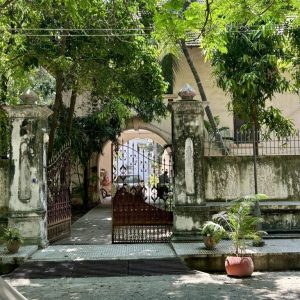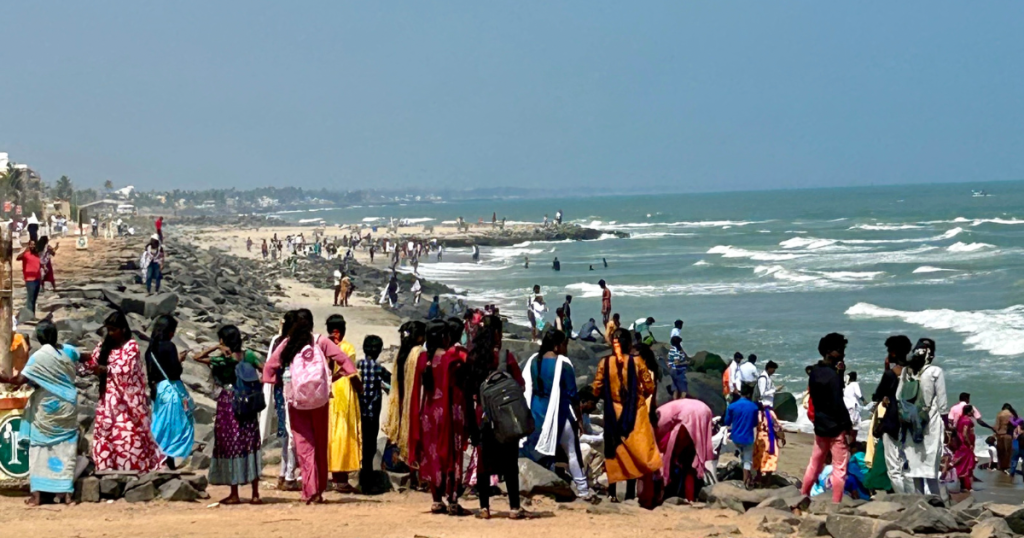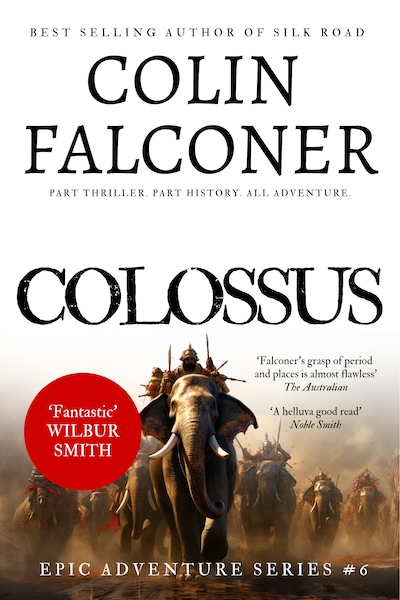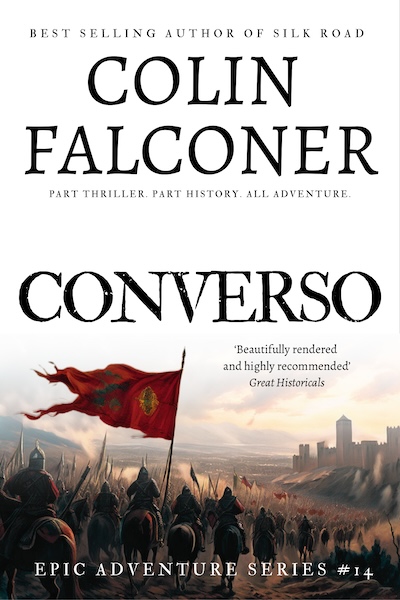The checkered history of a fascinating town
The Romans knew about Pondicherry as far back as 100 CE. They called it Poduke. Its name is believed to have derived from that. Travel companies like to refer to it as the Indian French Riviera because of its obvious French influence. The locals call it Pondi.
It figured prominently in Fever Coast and will feature even more in the sequel I’m planning. So I went to explore it for myself.
 The French colonists left a big footprint. The streets are lined with crumbling ice cream-coloured villas with decorative iron balconies. Sun dappled courtyards are shaded by giant banyan trees. The walls trail purple bougainvillea.
The French colonists left a big footprint. The streets are lined with crumbling ice cream-coloured villas with decorative iron balconies. Sun dappled courtyards are shaded by giant banyan trees. The walls trail purple bougainvillea.
There are art galleries and boutiques, even a few cafes where you can buy pain du chocolat and find a haven from the clamour of the scooters and yellow three-wheeled auto rickshaws.
The French influence was not as pernicious as that of the British. The city authorities have not taken down the old ceramic street signs saying Rue Suffren or Rue Dumas. And no one has yet agitated to pull down the statues of Joan of Arc or Joseph Dupleix.
How did the French come to be in Pondicherry?
It began in 1674, when the French East India Company – the Compagnie des Indes Orientales – set up a trading post here. Within a few years Pondicherry had become their French headquarters in India.
They built their settlement in a sensible grid pattern with the French and Indian quarters on either side of a canal. The French called them White Town and Black Town. Remember this was 1674 CE, about four hundred years before political correctness.
In 1742, Joseph Marquis Dupleix was appointed as French Governor General in India. His ambition was to dominate the Indian continent the way the British were to do later.
Dupleix provoked a number of military skirmishes with the East India Company, even though France and Great Britain were officially at peace. He might have succeeded in his ambitions, but for the arrival in Madras of a man named Robert Clive.
Clive began his career as a humble clerk writer in the British East India Company but rose quickly through the ranks through sheer audacity and innate military genius.
After a series of humiliating defeats at the hands of Clive, Dupleix was recalled to France in 1754. He died in ignominy.
The British expansion
After Dupleix’s defeat, the French sent the Comte de Lally to Pondicherry with orders to drive the British out of India. But he failed to halt the British East India Company’s expansion.
Following his defeat at the Battle of Wandiwash, the British marched on Pondicherry. After a siege lasting three months the British took the town and razed it to the ground.
Pondicherry lay in ruins for four years.
It was returned to French rule at the end of the Seven Years War under the treaty of Paris.
Meanwhile, Robert Clive had become the first Governor of Bengal. He set out the blueprint for future British rule in India. The British East India Company became the first multinational corporation to effectively pillage an entire country.
British and French intrigues in India continued for another fifty years. Pondicherry was at the heart of it.

The British bombarded the town again in 1793 after the start of the French Revolutionary Wars. They returned it to the French in 1814. It stayed in French hands, something of a backwater, until 1954.
Modern day Pondicherry
The town is no longer a backwater. It has a thriving tourist trade, and there are as many real estate developers as there are tailors.
It is a very picturesque place.
I even stumbled across a villa similar to the one where my Fever Coast antagonists Napoleon Gagnon and Adelaïde lived their lives and hatched their plots.
Watch out for it again in the sequel.
Fever Coast is available on Amazon in Kindle ebook, paperback and in Kindle Unlimited.









